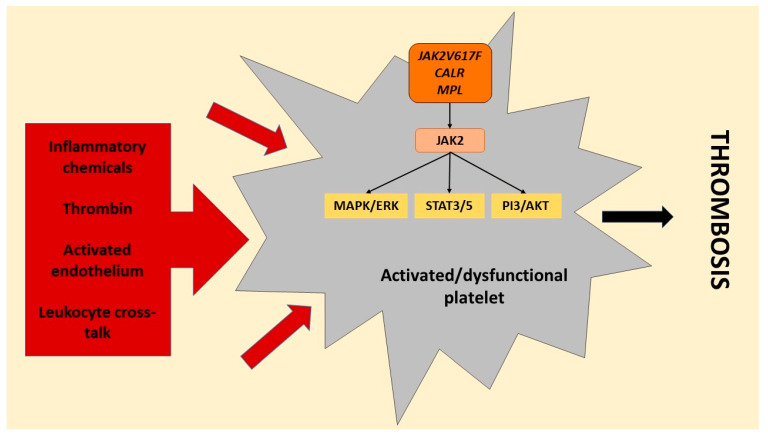Figure 4.
Platelet activation signals in myeloproliferative neoplasms. Platelets in myeloproliferative neoplasms are affected by the causative mutations (janus kinase 2 (JAK2)/JAK2V617F, calreticulin (CALR), and myeloproliferative leukemia virus (MPL)) in the haematopoietic stem cells, resulting in dysfunctional platelets prone to activation with hyperactive JAK2 signaling. The mutations in JAK2, CALR and MPL hyperactivate downstream signaling of JAK2, which activates mitogen-activated protein kinases/extracellular signal-regulated kinases (MAPK/ERK) and phosphoinositide 3-kinase/serine/threonine kinase Akt (PI3/AKT) and signals the transducer and activator of transcription 3/5 (STAT3/5). In addition, platelets are also activated by various external triggers affecting both clonally mutated and unmutated platelets, including the release of a multitude of inflammatory chemicals (cytokines and chemokines), thrombin, interaction with activated endothelium, and cross-talk between platelets and activated leukocytes, resulting in hyperactivated platelets. These intrinsic and extrinsic causal signals culminate in a thrombotic state in myeloproliferative neoplasms (produced with Microsoft PowerPoint) [55,56,57,58,59].

